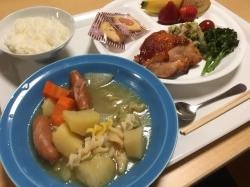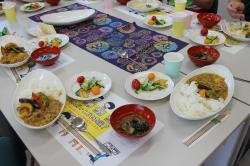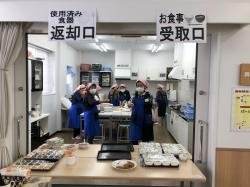Making a community where children are not left alone
In recent years, poor households and child poverty have become a social issue and for this reason, the Act to Accelerate Policies for Disadvantaged Children has been enacted since 2014, with the aim of comprehensively promoting measures against the poverty of children.
One of the initiatives under this Act is the operation of the children's cafeteria which does not require special qualifications or registration to manage. The concept has spread to local communities across Japan, and the number of the cafeterias reached at least 3,700 nationwide and about 90 in Miyagi Prefecture as of June 2019.
The Miyagi Co-op supports and collaborates with children's cafeterias based on its policies of 'supporting children and child-rearing and 'playing a role in the social safety net'.
What is the children's cafeteria?
The children's cafeterias are places for people to interact, where local residents and local governments do not only provide free or low-priced meals for children but also serve as places where office workers who return home late or families who do not have time to do housework gather for meals.
The children's cafeterias started as a voluntary private initiative managed by local volunteers and NPOs. The activity prevents children's eating alone and provides a happy mealtime.
Miyagi Co-op Initiatives
The Miyagi Co-op provides the following support to the groups that run children's cafeterias and those that want to start up.
〇To allow the use of the members meeting rooms of their stores as a dining place
〇To support activities that use welfare activity grant
〇To support food supply from food banks
〇To provide information related to children's cafeteria, etc.
The children's cafeterias operated at Miyagi Co-op stores are closed in April and May to prevent the infection of COVID-19.
Little goat Miyagi-chan (Miyagi Co-op original character) also participated.

Children's cafeteria in Iwanuma

Children's cafeteria in Sendai

In preparation





